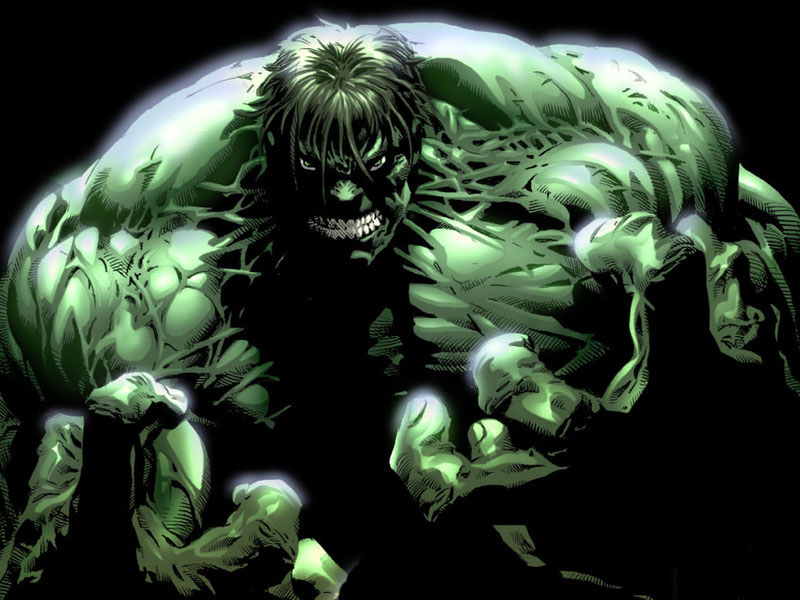In life, a little conflict is inevitable.
We don't always agree with one another. We don't always see things the same way. That's just how things are, given that we're not creatures with a hive-mind. Well, not yet, anyway.
But conflict can escalate, and reach a point where it ceases to be a place of mutual decision-making. It can become charged, and then heated, and then?
Then it can become intractable.
Intractable conflict is tricky, because, well, it's intractable. Once you've reached that stage, you do not want to have a facilitator working you through to win-win with your *cough* "conflict partner." You want to immolate your "conflict partner." You want them to burn. You want their utter destruction. They are the devil incarnate, a monster above all other monsters. You despise them with a rage that goes way down deep, hating every single thing about their being.
In conflict resolution circles, and amongst counselors and mediators, this is a problematic stage. Such conflicts often defy resolution. Because, well, duh.
That friendship is broken. That marriage is over. You will never, ever ever have your former relationship with that person. Period.
But that stage of conflict dynamic doesn't just permanently color your view of your enemy. When you're enmeshed in intractability, it messes with you.
You start seeing echoes of that conflict in every aspect of your life. You become obsessive, coloring each and every thing you encounter with the blood red hues of that particular hatred. Intractable conflict flavors everything with its sourness.
Let's imagine, for example, that you watched the recent eclipse. Here, an event of unique cosmic beauty, remarkable and glorious. Under normal circumstances, in the absence of intractable conflict dynamics, you'd simply marvel at it. "Wow," you'd say. "I know, right?" would say your neighbor.
If you're mired in intractable conflict, you will mutter, "I wonder if X is watching the eclipse. God, I hate X. I can just imagine their [profanity deleted] face looking up all stupid and [profanity deleted.] I hope they burn out their eyeballs." "Um." would say your neighbor, looking at you with faint alarm and edging away slightly.
Meaning, your ability to see any beauty or joy or wonder in life has been eclipsed by your obsession with X.
Good thing that didn't happen, huh? Whew.
This is the danger of that depth of hate. It consumes all of your other relationships, as it pours out over the floodgates and inundates every other part of your soul.
Which, for our own well being and sanity, and for our capacity to maintain a modicum of graciousness in life, is why attentiveness to its hold over us is so significant.
That friendship is broken. That marriage is over. You will never, ever ever have your former relationship with that person. Period.
But that stage of conflict dynamic doesn't just permanently color your view of your enemy. When you're enmeshed in intractability, it messes with you.
You start seeing echoes of that conflict in every aspect of your life. You become obsessive, coloring each and every thing you encounter with the blood red hues of that particular hatred. Intractable conflict flavors everything with its sourness.
Let's imagine, for example, that you watched the recent eclipse. Here, an event of unique cosmic beauty, remarkable and glorious. Under normal circumstances, in the absence of intractable conflict dynamics, you'd simply marvel at it. "Wow," you'd say. "I know, right?" would say your neighbor.
If you're mired in intractable conflict, you will mutter, "I wonder if X is watching the eclipse. God, I hate X. I can just imagine their [profanity deleted] face looking up all stupid and [profanity deleted.] I hope they burn out their eyeballs." "Um." would say your neighbor, looking at you with faint alarm and edging away slightly.
Meaning, your ability to see any beauty or joy or wonder in life has been eclipsed by your obsession with X.
Good thing that didn't happen, huh? Whew.
This is the danger of that depth of hate. It consumes all of your other relationships, as it pours out over the floodgates and inundates every other part of your soul.
Which, for our own well being and sanity, and for our capacity to maintain a modicum of graciousness in life, is why attentiveness to its hold over us is so significant.












